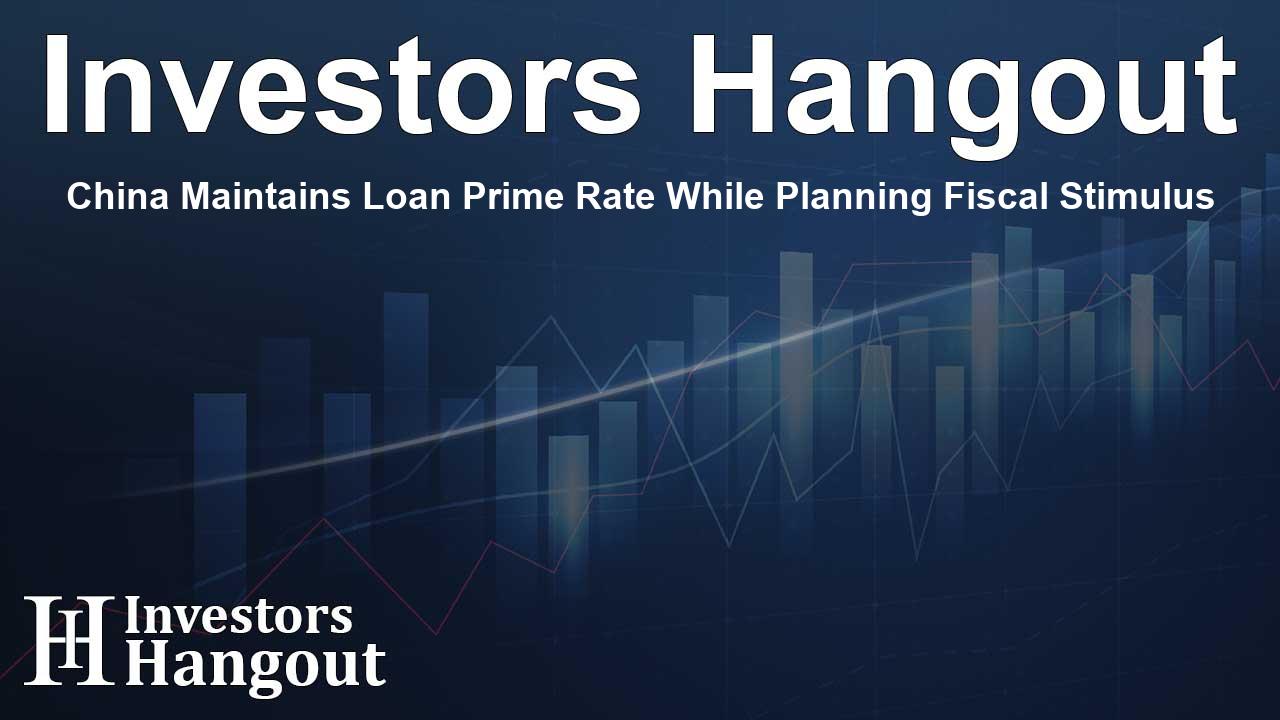China Maintains Loan Prime Rate While Planning Fiscal Stimulus

China Holds Steady on Loan Prime Rate Amid Fiscal Adjustments
The People’s Bank of China (PBOC) has decided to keep its benchmark loan prime rate stable, adhering to expectations of analysts and market observers. This decision arrives at a crucial time when the country is strategizing to ramp up fiscal spending aimed at boosting its economy.
Understanding the Loan Prime Rate
In this latest announcement, the one-year loan prime rate (LPR) remains at 3.10%, while the five-year LPR is also unchanged at 3.6%. The PBOC’s current stance follows a couple of reductions earlier this year to stimulate growth. Despite these efforts, the current rates persist in record-low territory, indicative of the ongoing economic challenges the country faces.
How the LPR Influences Lending
The LPR serves a significant role in the Chinese financial landscape, as it is utilized as a benchmark for lending rates across the nation. It is computed by the PBOC with input from 18 designated commercial banks, reflecting the broader economic conditions and the banking system's liquidity.
Currency Weakness as a Consideration
Analysts believe that the PBOC's ability to further decrease the LPR is restricted, particularly due to the falling value of the yuan. In recent days, the yuan has confronted its weakest position in over a year, intensifying concerns about its impact on trade and investment.
Looking Ahead: Fiscal Stimulus Plans
Acknowledging the limited results attained from recent monetary stimulus measures, China is now focusing on increased fiscal expenditure to invigorate its economy. Plans are underway to introduce targeted fiscal initiatives that support private consumption and stabilize the property sector.
The Need for Clarity in Policy Direction
While these fiscal strategies have been hinted at, precise details are yet to be released. Policymakers are also observing international developments closely, especially in light of changing leadership in the U.S. and the potential implications it could have on trade relations and tariffs, particularly concerning the new presidential administration.
Monitoring Economic Developments
As the government prepares to transition into the next fiscal year, it remains essential for stakeholders to keep a close eye on evolving economic indicators and policy announcements that may affect both domestic and international economic dynamics.
Frequently Asked Questions
What is the current loan prime rate in China?
The current one-year loan prime rate is at 3.10%, while the five-year rate remains at 3.6%.
Why did the PBOC keep the loan prime rate unchanged?
The PBOC decided to keep the rate unchanged due to limited room for further cuts and ongoing concerns over the weakening yuan.
What are the implications of a stable loan prime rate?
A stable loan prime rate suggests stability in lending costs, which may encourage borrowing and investment amidst economic uncertainties.
How does the loan prime rate impact the economy?
The loan prime rate influences borrowing costs for businesses and consumers, impacting overall economic growth and spending patterns.
What fiscal measures is China planning to implement?
China is expected to introduce more fiscal spending, potentially targeting support for private consumption and the real estate market.
About Investors Hangout
Investors Hangout is a leading online stock forum for financial discussion and learning, offering a wide range of free tools and resources. It draws in traders of all levels, who exchange market knowledge, investigate trading tactics, and keep an eye on industry developments in real time. Featuring financial articles, stock message boards, quotes, charts, company profiles, and live news updates. Through cooperative learning and a wealth of informational resources, it helps users from novices creating their first portfolios to experts honing their techniques. Join Investors Hangout today: https://investorshangout.com/
Disclaimer: The content of this article is solely for general informational purposes only; it does not represent legal, financial, or investment advice. Investors Hangout does not offer financial advice; the author is not a licensed financial advisor. Consult a qualified advisor before making any financial or investment decisions based on this article. The author's interpretation of publicly available data shapes the opinions presented here; as a result, they should not be taken as advice to purchase, sell, or hold any securities mentioned or any other investments. The author does not guarantee the accuracy, completeness, or timeliness of any material, providing it "as is." Information and market conditions may change; past performance is not indicative of future outcomes. If any of the material offered here is inaccurate, please contact us for corrections.